39 drag the labels onto the diagram to identify the various types of synarthroses and amphiarthroses.
Human anatomy [Eighth edition] 9780134243818, 1292156791, 9781292156798, 0134243811, 9780134283395, 0134283392, 9780134398303, 0134398300. For one-semester courses in human anatomy.Helps readers visualize human anatomyThe #1 best-selling book for the human an Drag the labels onto the diagram to identify the various types of synarthroses and amphiarthroses. 1. suture 2. gomphosis 3.synchondrosis 4. synostosis
amphiarthrosis Drag the labels onto the diagram to identify the various types of synarthroses and amphiarthroses. 1. Suture 2. Gomphosis 3. Synchodrosis 4. Synostosis 5. Syndesmosis 6. Symphysis Drag the labels to identify the structures within a synovial joint. 1. Medullary Cavity 2. Articular 3. Metaphysis 4. Spongy 5. Periosteum 6.
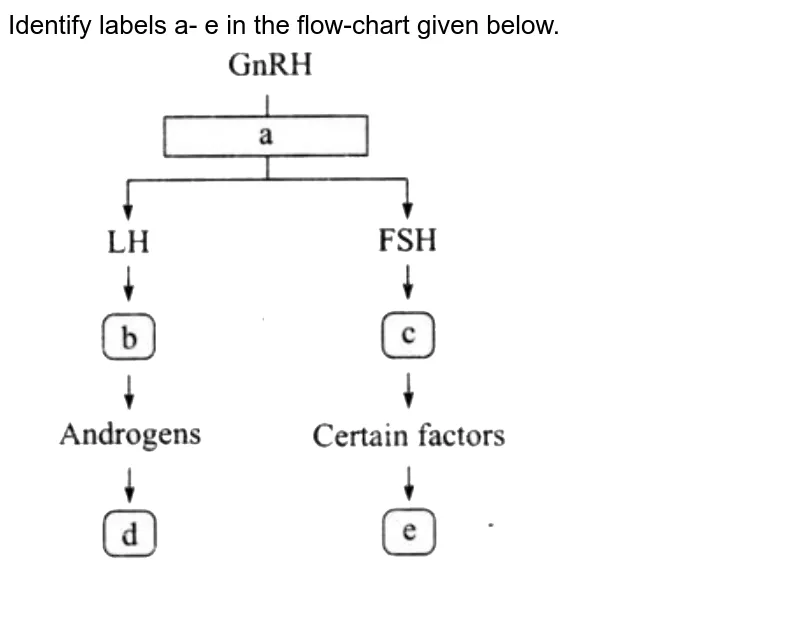
Drag the labels onto the diagram to identify the various types of synarthroses and amphiarthroses.
Joints are formed where bones come together. The six types of synovial joints are the pivot, hinge, saddle, plane, condyloid, and ball-and-socket joints. Pivot joints are found in your neck ... HW 4 Due: 11:59pm on Friday, October 6, 2017 To understand how points are awarded, read the Grading Policy for this assignment. Art-labeling Activity: Curves and Regions of the Vertebral Column Learning Goal: To learn the curves and regions of the vertebral column. Label the curves and regions of the vertebral column. Part A Drag the labels onto the diagram to identify the curves and regions ... Label each page with the date and a heading for each day. Focus on main points and try to use an outline format to take notes to capture key ideas and organize sub-points. Leave lots of white space in your note-taking. A solid page of notes is difficult to study. Review and edit your notes shortly after class—at least within 24 hours
Drag the labels onto the diagram to identify the various types of synarthroses and amphiarthroses.. © 2022 Knowledge Factor, Inc. All rights reserved. This website uses cookies and third party services. Review our Privacy Policy and Terms and Conditions I ACCEPT ... Synovial joints are joints that have a space between the adjoining bones. The functional classification divides joints into three categories: synarthroses, amphiarthroses, and diarthroses. The movement of synovial joints can be classified as one of four different types: gliding, angular, rotational, or special movement. Drag the labels onto the diagram to identify the various types of synarthroses and amphiarthroses. Suture, Gomphosis, Synchondrosis, Synotosis, Syndesmosis, ... The B cells produce specialised glycoproteins called which have 3 main functions : of particulate matter, of bacteria to facilitate their subsequent phagocytosis of cells and of toxins is the most abundant antibody. (b) Label the given diagram. ®ir Xsfc(-ai i (b) D e n a bank (d) Vijaya bank. I2>|
Types of Synovial Joints. Synovial joints are further classified into six different categories on the basis of the shape and structure of the joint. The shape of the joint affects the type of movement permitted by the joint. These joints can be described as planar, hinge, pivot, condyloid, saddle, or ball-and-socket joints. Part A Drag the labels onto the diagram to identify the various types of synarthroses and amphiarthroses. Reset Help Syndesmosis Symphysis Suture Synostosis ... Synarthroses. Synarthroses are immovable joints. The singular form is synarthrosis. In these joints, the bones come in very close contact and are separated only by a thin layer of fibrous connective tissue. The sutures in the skull are examples of immovable joints. Amphiarthroses. Slightly movable joints are called amphiarthroses. The singular ... Correct Part D - Summary: Components of Skin Layers Each layer of the skin is composed of a different type of tissue and contains different components. Drag and drop the labels to their appropriate location in the skin. Hint 1. Exocrine Glands of the Skin Exocrine glands secrete their products via ducts.
Academia.edu is a platform for academics to share research papers. Aug 14, 2014 · A new head-to-head comparison of screening questionnaires for posttraumatic stress disorder (PTSD) shows a worrying discordance between the previous version of the PTSD definition in the ... Solved Part A Drag the labels onto the diagram to identify | Chegg.com. Science. Anatomy and Physiology. Anatomy and Physiology questions and answers. Part A Drag the labels onto the diagram to identify the various types of synarthroses and amphiarthroses. Reset Help Syndesmosis Symphysis Suture Synostosis Gomphosis Synchondrosis. Part A Drag the labels onto the diagram to identify the various types of synarthroses and amphiarthroses. Reset Help Syndesmosis Symphysis Suture Synostosis Gomphosis Synchondrosis Drag the labels onto the diagram to identify the structures of the upper respiratory system. Part...
Learning Goal: To learn the various types of synarthroses and amphiarthroses. Label the various types of synarthroses and amphiarthroses. Part A Drag the labels onto the diagram to identify the various types of synarthroses and amphiarthroses. ANSWER: Correct Art-labeling Activity: The Structure of a Synovial Joint (sagittal section) Identify the structures within a synovial joint.
4 Examining the Histologic Structure of the Large Intestine 584 5 Identifying Types of Teeth 585 6 Studying Microscopic Tooth Anatomy 585 7 Examining Salivary Gland Tissue 586 8 Examining the Histology of the Liver 587 Review Sheet 589 39 Digestive System Processes: Chemical E x ercise and Physical 595
Identify and describe the different types of mechanical loads that act on the human body. Identify and describe the uses of available instrumentation for measuring kinetic quantities. Distinguish between vector and scalar quantities. Solve quantitative problems involving vector quantities using both graphic and trigonometric procedures.
Ashland Community & Technical College is one of the 16 colleges working to bring better lives to all Kentuckians as a part of KCTCS. ACTC currently has three campuses in Boyd County, KY that offer both on-campus and online classes. Never underestimate you.
Drag the labels onto the diagram to identify the different types of fibrous and cartilaginous joints. 1. Suture 2. Synchondrosis 3. Symphyses 4. Symphysis
Label each of the following systems as high or active site and changes the conformation low entropy: i. the instant that a perfume bottle is of the active site, decreasing its affinity sprayed compared with 30 seconds later, ii. an old for the substrate 1950s car compared with a brand new car, and iii. d. Binds directly to the active site and a ...
Part A Drag the labels onto the diagram to identify the various types of innate (nonspecific) immunity. Reset H such as the skin and mucous membranes keep hazardous organisms and materials outside the body. are cells that engulf patho- Fever gens and cell debris.
Drag each description into the appropriate position to identify the three different types of fibrous joints. 1. gomphosis 2. syndesmosis 3. suture
Drag the labels onto the diagram to identify the various types of synarthroses and amphiarthroses. 1. Suture 2. Gomphosis 3. Synchodrosis 4. Synostosis hyaline cartilage. Which component of the connective tissue in this field of view is highlighted? extracellular matrix.
Label each page with the date and a heading for each day. Focus on main points and try to use an outline format to take notes to capture key ideas and organize sub-points. Leave lots of white space in your note-taking. A solid page of notes is difficult to study. Review and edit your notes shortly after class—at least within 24 hours
HW 4 Due: 11:59pm on Friday, October 6, 2017 To understand how points are awarded, read the Grading Policy for this assignment. Art-labeling Activity: Curves and Regions of the Vertebral Column Learning Goal: To learn the curves and regions of the vertebral column. Label the curves and regions of the vertebral column. Part A Drag the labels onto the diagram to identify the curves and regions ...
Joints are formed where bones come together. The six types of synovial joints are the pivot, hinge, saddle, plane, condyloid, and ball-and-socket joints. Pivot joints are found in your neck ...



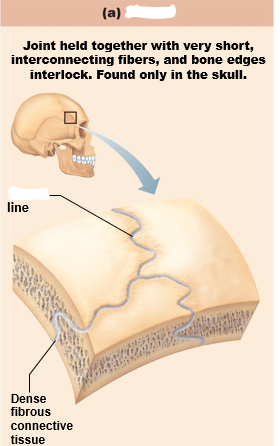



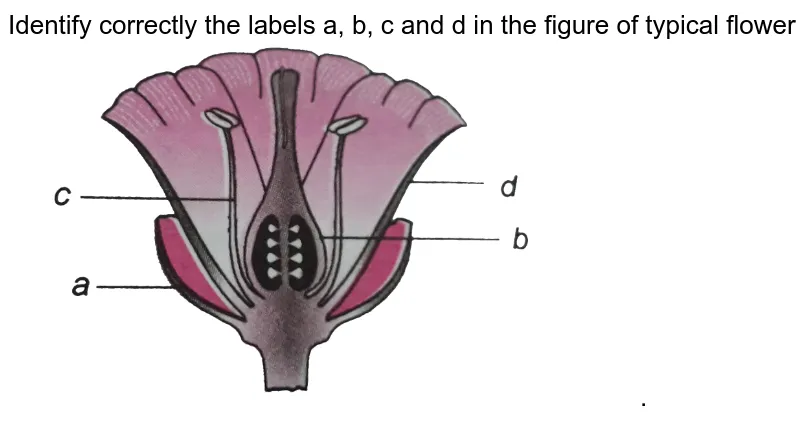


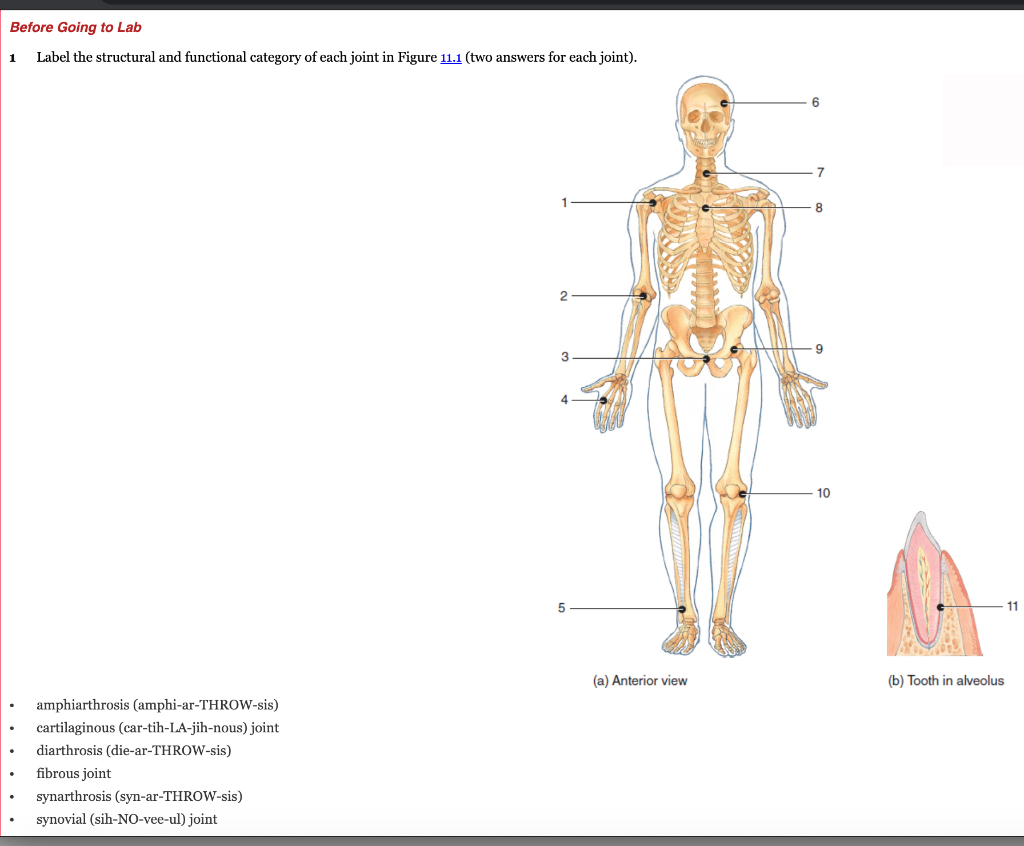


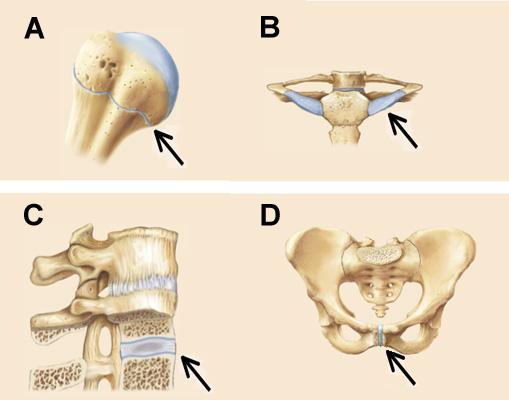

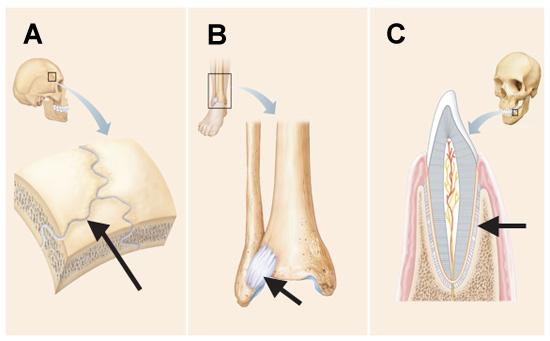
















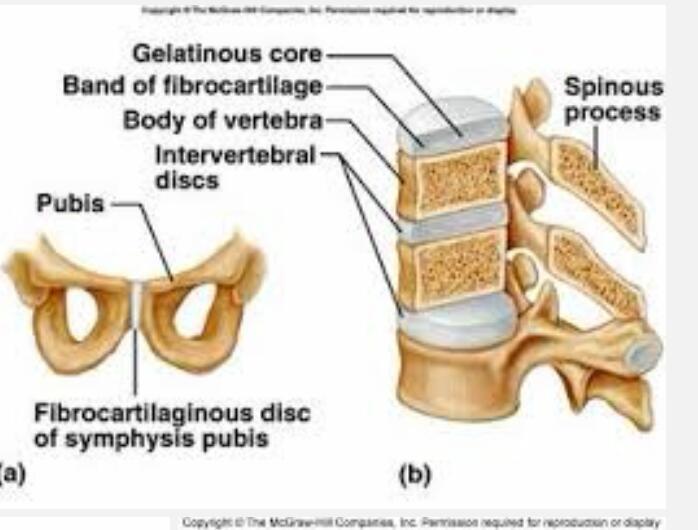

Comments
Post a Comment